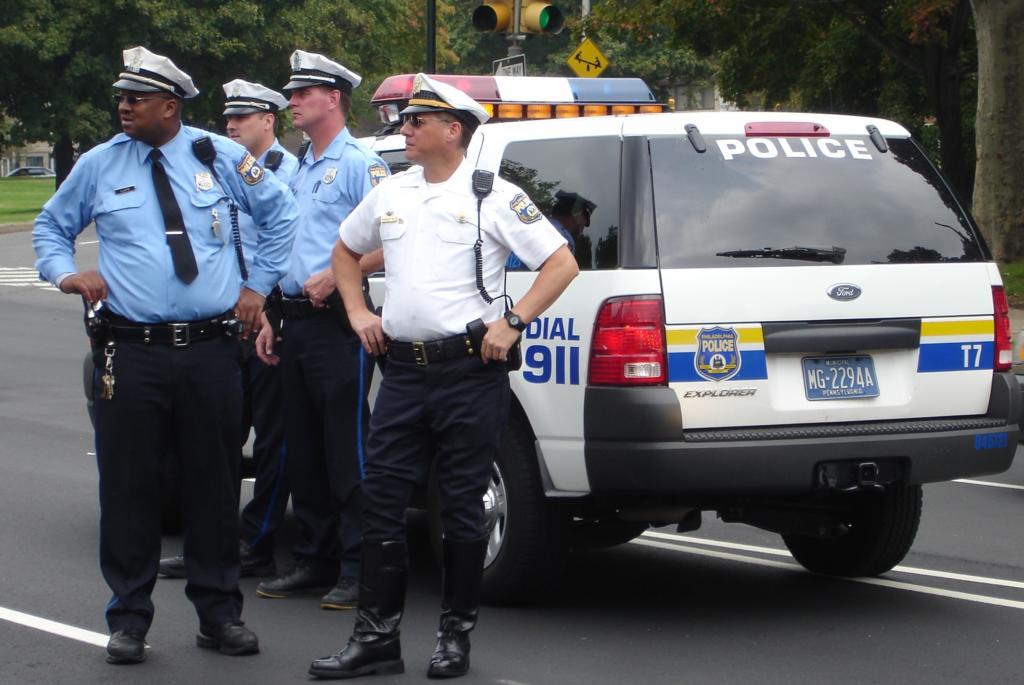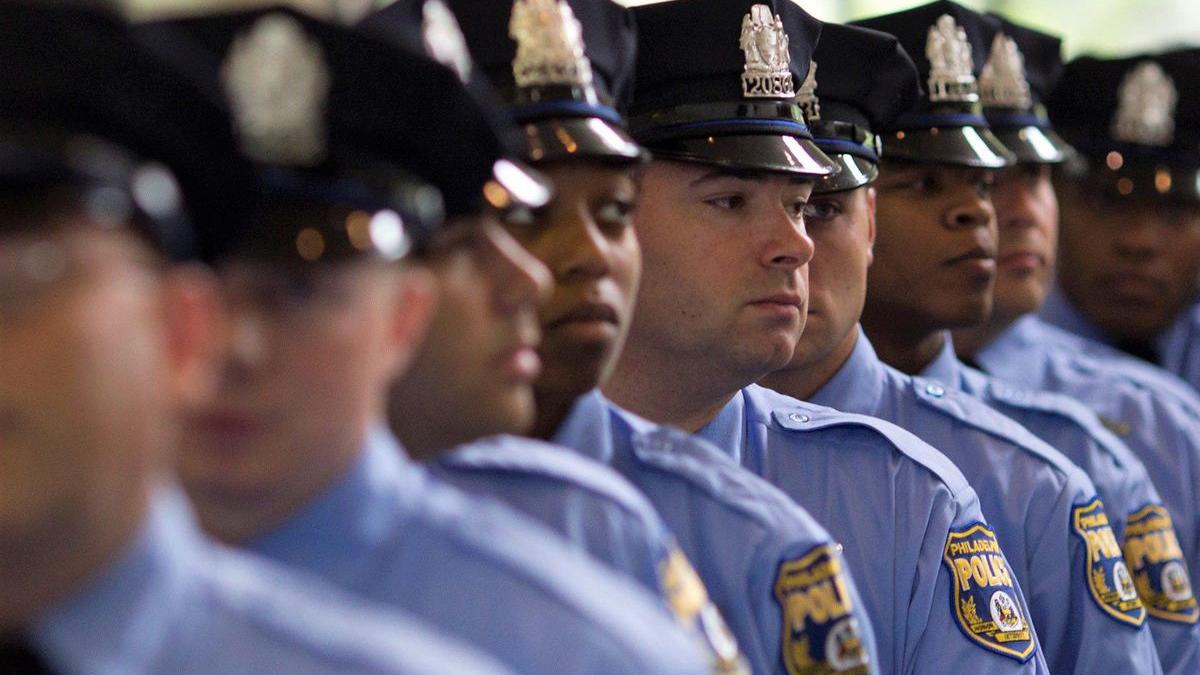By Ryan K. Smith
Earlier this month, many eyes were on Philadelphia due to its pivotal standing in deciding the 2020 presidential election. The week prior to the city acting as a key player in the selection of Joe Biden as president-elect, the nation watched Philly for a much different reason.
It had become the latest American locale to erupt in civil unrest following the Oct. 26 police killing of 27-year-old father of 10, Walter Wallace, Jr. in West Philly. He was acting erratically with a knife in his hand when officers Thomas Munz, Jr. and Sean Matarazzo fired seven shots each from 10 feet away as Wallace’s mother pleaded on the street with them. You’ve probably seen the video by now.
Wallace’s death hit home for this reporter not only because he was a fellow Black man. Like me, Walter Wallace, Jr. was stricken with bipolar disorder and was seemingly in the throes of a manic episode. Like Walter, I’ve also had run-ins with the police while manic that did not end in my favor. Though I’m lucky that the Upper Darby police had tasers drawn instead of guns when they kicked in my bedroom door, there have been quite a few Black individuals with a serious mental illness who have been killed by police.
There’s Dontre Hamilton in Milwaukee, who was killed after police approached him while sleeping on a park bench. There’s Tanisha Anderson, who was killed after being slammed on the pavement by Cleveland police. Saheed Vassell was killed in Brooklyn as he aimed a metal pipe at people like a gun. In September, Daniel Prude – who was naked and bleeding as he walked down a Rochester, N.Y., street – died after three officers put a spit hood on him, pinned him down and restrained him. All of these people and others needed help from professionals but were killed instead.
However, the police harming the mentally ill isn’t just a Black issue. According to the Washington Post’s database of police killings by on-duty officers since 2015, 1,332 people have been killed during a mental health crisis (23 percent of all cases). Most of them were white. In 2015, the Treatment Advocacy Center found that people with untreated serious mental illnesses are 16 times more likely to be killed after being approached by law enforcement (though it has been reported that Wallace, Jr. was prescribed Lithium as his treatment). Also that year, the Illinois chapter of the National Alliance on Mental Illness concluded that almost half of the people who die at the hands of police have some kind of disability, a number heavily populated by people with a serious mental illness.

According to Mark Salzer, a psychologist and professor at the College of Public Health at Temple University, there are a few explanations for why police interactions with the mentally ill end so badly so many times.
“First, police are trained to respond to potentially risky situations in an aggressive manner that is intimidating in order to get people to back down and obey orders,” he said.
“People in mental health crises may not be thinking clearly or able to attend to what is being communicated, and, therefore, might not obey orders communicated in this way. Police then feel threatened and react as they have been trained – with deadly force.
“Second, many people with mental health issues also have trauma histories that make them especially reactive to aggressive policing tactics, as well as upset by the mere presence of people in uniform and carrying weapons. Specialized training for police to detect behavioral health issues and respond in less threatening ways have been developed, and many Philadelphia police officers have received such training, but not enough to prevent these incidents from occurring.”
Walter Wallace, Jr.’s family and legal representation are rightfully calling for sweeping police reform. One of their main goals is to see every Philly cop equipped with a taser, so they have a less-lethal option of subduing mentally ill suspects.
But tasers may not be the answer either. Speaking from experience, a taser is still a very violent, traumatic response to a person who needs care. Though rare, tasers can also be deadly. In July, officers Joshua Taylor and Brandon Dingman of the Wilson PD in Oklahoma were charged with second-degree murder after they used a taser 50 times on 28-year-old Jared Lakey, who died as a result.
When a person is experiencing a manic episode of extreme paranoia and fear, the police’s very presence could escalate the situation and how the cops react is unpredictable. Even if the encounter doesn’t end in calamity, it is common for officers to take an ailing person, handcuff them and lock them up in a cell instead of taking them to a hospital for treatment.
So, what is the answer? I think we need to ask why police are the first responders to 911 calls concerning people having a mental issue. Judging by what we know, it seems that police aren’t receiving adequate training when it comes to dealing with the mentally ill. According to reports, varying by state, officers receive four to 12 hours of mental health training. A 2015 survey conducted by Police Executive Research Forum notes that recruits only receive eight hours of crisis intervention and de-escalation training, respectively, compared to 58 hours of firearms training.
Salzer said mental health professionals can decrease the risk of violent or deadly outcomes in some situations based on two factors:
“First, they present themselves differently. They do not wear uniforms, carry weapons, and appear to be a threat. That is a huge issue for those who have experienced trauma and violence in their lives. Many individuals with behavioral health issues have come to trust mental health professionals in ways that they may not trust police.
“Second, mental health professionals have been trained in de-escalation strategies, which helps cool the person and situation down. They speak calmly, take time to listen and empathize, and offer hope and alternatives to whatever the individual may be experiencing,” he said.
Mental health professionals have been trained in de-escalation strategies, which helps cool the person and situation down.
– Mark Salzer
One measure that has been put in place in some communities nationwide is the implementation of the “Memphis Model.” Departments send all or some of their officers to crisis intervention training (CIT), where they learn to identify mentally ill individuals and get them to treatment. However, out of 18,000 of the nation’s police departments, only about 2,700 have adopted this model.
Some believe that police should be taken out of the equation in the event of mental health crises unless they are needed. Instead, mental health professionals should be on call to handle the situation. One American city that has set a shining example to the rest of the nation in this respect is Eugene, Ore. In 1989, the city put in place a program called Crisis Assistance Helping Out On The Streets (CAHOOTS) where unarmed mental health workers are dispatched on 911 calls instead of police for non-violent incidents.
The program came out of the White Bird Clinic, “a collective founded in 1970 that originally had strong links to counterculture activists, and now provides a range of health, education and community support services.” CAHOOTS responded to 24,000 calls in 2019 and only needed police backup 150 times. Furthermore, CAHOOTS was shown to have saved the Eugene Police Department an average of $8.5 million per year from 2014 to 2017. A couple cities, such as Denver and Aurora, have followed suit by launching similar pilot programs.
According to Salzer, there are resources that exist in Philadelphia for behavioral crises, but they are not a part of the emergency response system. He also does not advocate for the complete removal of police from the equation given certain situations.
“Philadelphia does have mobile crisis teams that deal with behavioral health issues already. For example, the agency that was providing services to Walter Wallace Jr. had a crisis team that could have responded if called. The problem that many places are facing is how to get behavioral health experts and resources included as part of the emergency response system (i.e., 911 system). This is what Eugene, Ore., has figured out how to do. This is all very doable,” he said.
“I would say, however, that I would not be inclined to completely remove police from certain emergency response calls, especially those involving aggression, threats, or weapons. Many mental health professionals, myself included, have been in situations where aggression has occurred and some force is needed. Instead, I would encourage the mental health crisis teams take the lead in such calls with options for nearby police backup as needed.”
In response to Walter Wallace, Jr.’s death, Mayor Jim Kenney and Police Commissioner Danielle Outlaw announced the expansion of a pilot program where behavioral health specialists are placed into the police dispatch center to “better evaluate calls for mental health concerns.” Another call has been made by The Rev. Mark Tyler of Mother Bethel AME Church to increase the number of mental health professionals, as well as create a hotline similar to 911 to circumvent contacting the police during a crisis.
Is that enough, though? How far are Philly and other cities from replicating the CAHOOTS model and tailoring it to the needs of their residents? Something’s got to give so that we, the mentally ill, are cared for in times of cerebral chaos instead of being subjected to a premature, violent death due to our afflictions.
If you happen to experience a mental health crisis or know someone who is and want an alternative to 911, the PA Department of Human Services suggests calling the 24/7 National Suicide Prevention Lifeline at 1-800-273-8255 for intervention. There is also the SAMHSA Treatment Referral Helpline which can be reached Monday through Friday from 8AM to 8PM at 1-877-726-4727. In Philadelphia, there is the 24-hour Mental Health Delegate Hotline which can be reached at 215-685-6440.




